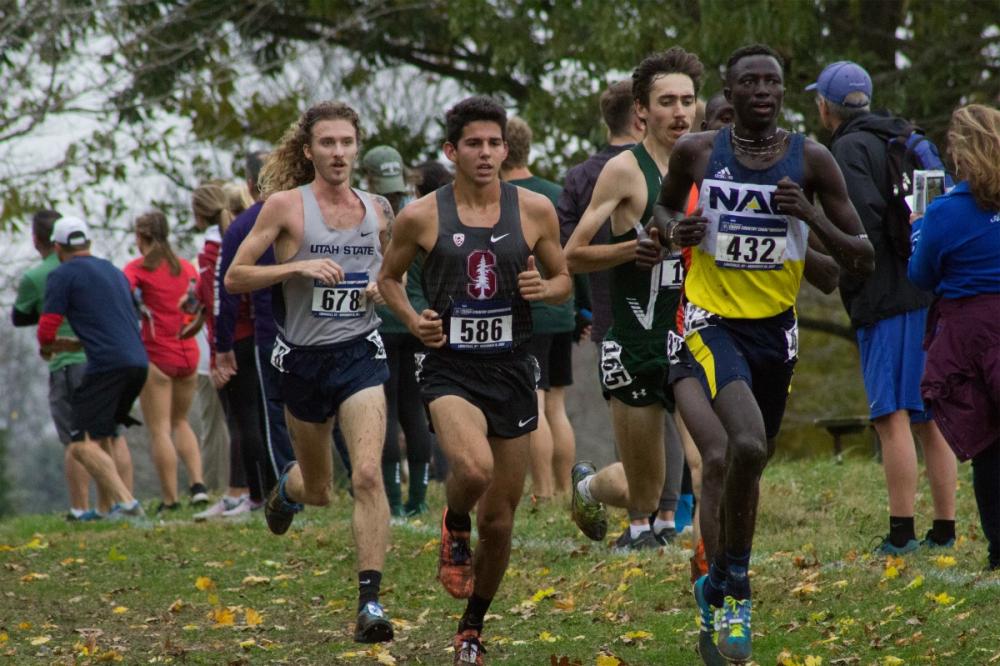Folders |
Dillon Maggard Has Come A Long Way at Utah StatePublished by
Dillon Maggard has come a long way at Utah State By Doug Binder, DyeStat Editor News that Steve Reeder had died reached the Utah State track and field team on the morning of Jan. 30, 2016. The athletes were in Albuquerque, N.M., preparing to compete at the New Mexico Team Invitational. Reeder had retired as the distance coach in Logan seven months earlier, but his impact and influence were still palpable. He was a middle school teacher who also trained the runners at Utah State for 35 years. “I hadn’t lost anyone close to me before Coach Reeder,” Dillon Maggard said. “And so that made a big impact on me.” Maggard and his teammates wore black armbands and went to the meet intent on dedicating their performances to their former coach. The sophomore lowered his personal best in the mile by eight seconds that day, to an altitude-adjusted time of 4:04. “I raced off emotion,” Maggard said. “I thought about Coach Reeder in the race and at the starting line. My way of honoring him was trying to run fast.” After years of missteps and second and third chances, Maggard’s focus and resolve seemed to click into place that day. Two weeks later, he qualified for the NCAA Indoor meet, his first national event. And two years later, the senior from Kirkland, Wash., who wasn’t even the best runner on his high school team, is easily the best in Utah State history, an All-American with a bright future after graduation. On Friday afternoon at the Iowa State Classic, NCAA cross country champion Justyn Knight of Syracuse and Maggard went 1-2 in the 5,000 meters, clocking the fourth- and fifth-fastest times in the world so far this year. Knight ran 13:39.59 and Maggard logged a personal best 13:40.59, trailing only Southern Utah senior Mike Tate (13:37.33) among Division 1 performers this season. Two weekends ago, Maggard took over the NCAA lead in the 3,000 when he ran 7:52.99 in Seattle, before Knight clocked 7:45.86 on Feb. 3 at the NYRR Millrose Games. Maggard’s emergence over the last two years has been impressive, and it also has something to do with his new coach, Artie Gulden. That name, Artie Gulden, rings a bell with college track coaches with long memories. Gulden is the son of Arthur Gulden, who coached track and field at Bucknell University in Central Pennsylvania for 31 years before his death in 2001. Loss and renewed determination have shaped Maggard and Gulden at different rates and in different ways, but in Logan, their partnership as an athlete and coach is working. And in them, the spirits of two old coaches still have some life as well. &&&
Dillon Maggard grew up in Kirkland, which is on the north side of Seattle. By his own admission, he was a “troubled teenager.” In his junior year, Maggard’s father told him that he had to pick a sport, something constructive that he could channel his energy into. Maggard joined the Lake Washington High swim team. In addition to time spent swimming laps in the pool, the team also trained on dry land and there was running involved. Miles. “The first time I did the mile, I ran 6:10,” Maggard said. “I ran it every week and through swimming season I dropped my mile time, so that by the end I was down to 5:20.” That led an invitation to join the track team. Maggard, as a high school junior, lowered his 1,600-meter time to 4:44 and his 800 to 2:03. “At first, it was just a sense of accomplishment,” Maggard said. “Then I tried to train that following summer and I was running four miles every couple of days. It helped me mentally to find something for direction and purpose.” Lake Washington had a standout runner on the team, but it wasn’t Maggard. Devon Grove won the Washington Class 2A cross country title in 2013 and went on to run for Cal Poly San Luis Obispo. Maggard ran about a minute behind Grove in most of Lake Washington’s meets. At the state meet, he cut that margin down to 49 seconds and finished 16th. “I looked up to Devon and tried to hang with him (in workouts),” Maggard said. “I knew if I did that I would eventually be as good as him.” But on that day at Sun Willows Golf Course in Pasco, site of the Washington high school cross country championships, the attention was focused on some of the top runners in the country -- Alexa Efraimson, Tanner Anderson, Joe Hardy, John Dressel and Kai Wilmot. Maggard was the 110th-fastest boy in the meet across all classifications. With just half a year left to try and lure a college coach’s interest, Maggard went to work trying to close the gap on his classmate, Grove. In mid-April, Maggard crashed on his snowboard and broke his collarbone. It was a little more than a month from the state meet, and he was determined to push through the injury. He was back to running a week after the fall. He drove his 1,600 PR down to 4:19.73, just two seconds away from Grove’s school record. And he qualified for the state meet in the 800, earning a podium spot by placing seventh in the final in 1:56.94. With 4:19/1:56 credentials, Maggard’s choices for college running seemed limited. Western Oregon and Seattle Pacific showed interest. One of the coaches that Maggard and his father contacted was Reeder at Utah State. “(Reeder) flew me out that summer. It was the only visit I took, but it just sort of felt right,” Maggard said. With a partial scholarship offer in hand, Maggard was off to Logan. &&&
Artie Gulden can still remember how upset he was on the first day of kindergarten, 35 years ago. “I didn’t get to ride the tractor with my dad and line the cross country course that day,” Gulden recalled. From nearly the time he could first walk, young Artie went to afternoon practices with his dad, Arthur Gulden, the head coach of the Bucknell track and cross country teams in Lewisburg, Pa. “I was on the course with him, or with him at the track, all the time,” Artie Gulden said. “Coaching, like my dad, was what I wanted to do since I was very young.” Artie Gulden can discuss the history of Bucknell track and field, going back four decades, with a fluency that might be unrivaled. He had a front row seat for much of it. But there is one memory that he can’t escape. In the spring of 2001, Artie Gulden was a 21-year-old sophomore at Bucknell. He had served a two-year mission for his LDS church and was a member of his dad’s track team. Arthur Gulden was in poor health and fighting cancer for the third time. He had just spent three months at Johns Hopkins Hospital, where he underwent a bone marrow transplant. Coach Gulden, who won 68 conference titles at Bucknell, had taken a leave of absence from coaching that semester, but he asked his son to take him to the IC4A/ECAC Championships at Princeton. They watched the Friday night distance races together and Artie took his father back to the hotel. “That night was tough,” Artie remembered. “He was tossing and turning and coughing a lot. I could tell he wasn’t feeling well and suffering a bit.” By the end of a sleepless night, Artie decided he needed to get his father to the hospital. He helped his father up from the bed, but then he fell back, limp. Artie called 911 and frantically began administering CPR. Paramedics arrived, Artie said, and could not get a response. Arthur Gulden was pronounced dead in the hotel room. A half hour went by and the medical personnel on scene were filling out paperwork when somebody noticed that he had started breathing again. There was a faint heartbeat. Artie’s mother and sister came to the hospital and saw Arthur one last time, in ICU, before he passed away Saturday afternoon. “Easily the worst experience of my life,” Artie Gulden said. Within a few months, the grieving son had lost his appetite for training and competing. He quit the team and poured his energy into his studies. He got married and started a family. He went to graduate school and earned two master’s degrees. Gulden spent eight years in health administration, but also kept a toe in coaching. He started with a high school team, as something to do on the side. But there was something about it that consumed him. He wanted to coach full-time. He got a job as an assistant at Idaho State, where he spent two years. And then, after Reeder retired from coaching in June of 2015, Gulden was hired as Utah State’s distance coach. &&& Maggard quickly found a new runner to model at Utah State when he arrived on campus. Senior Eric Shellhorn was the best guy on the team, an NCAA qualifier in cross country, an all-conference performer and a top student. “I looked up to him as a role model,” said Maggard, who roomed with Shellhorn and tried to follow his example. “I saw that he had success in running and school and I trained with him, and he told me about mileage. He told me that summer training is what makes the difference.” Maggard had modest results as a freshman. He was getting used to college life. He was mountain biking and snowboarding, and in the winter of his first year in Logan, he broke his collarbone – the other one – again. That spring, in 2015, Maggard placed 25th in the Mountain West Conference 5,000 final, in 15:22.44. The summer that followed was productive. Maggard signed on with the Utah Conservation Corps and went up into the mountains east of Logan to work on trail maintenance and habitat restoration. It was nine days on, five days off, all through the summer. The work was hard, dirty and exhausting. And Maggard was topping off those days with long runs on technical trails at 9,000 or 10,000 feet. “It gave me a lot of confidence because there was constant mental and physical fatigue,” he said. “You live out in the woods in the Uinta Wilderness. It stepped me up to another level. Running for myself in the woods, it reaffirmed my love for running.”
“I was burning a lot of calories,” he said. “Breakfast was beef jerky and oatmeal. I’d eat four packets of oatmeal.” He’d work for 10 hours, carrying a pack. Sometimes he lugged a chainsaw or moved rocks or used a shovel. When the work was done, he would run for 60-90 minutes by himself. “It was a really good experience for me,” Maggard said. “Coming back to school, I thought no matter how tired I am, I can always go for a run.” The work also filled his spirit. On a pristine day at Squaw Basin, Maggard soaked in the view of alpine lakes and jagged peaks. He grew his hair out that summer and added to his collection of tattoos with an image of the ancient Jardine Juniper tree that is a feature on one of his favorite trails. “It was a pretty primal state of living,” he said. “Most people wouldn’t want to do something like that, but I enjoyed it. It was just a feeling that it was something I knew I was supposed to do.” The fall cross country season, however, brought more setbacks. The new level of fitness and commitment didn’t translate to the season. Partying, staying up too late, not eating right, all caught up to him. Maggard was hit with pneumonia and spent a week in bed. Then, his season came to an abrupt halt. Maggard had a drinking problem and he was suspended from the team. It was a critical moment and he knew that he was in danger of being kicked out of the program for good. “I got in trouble for drinking and that was a low point in my life,” Maggard said. “I had to choose. Was I going to go all in on running? I didn’t know if I’d be on the team or not. I had to prove myself, not only to myself, but everyone on the team and everyone else, that I had more in me.” Maggard had one-on-one meetings with his new coach, Gulden, which served to re-frame his situation. “He knew that we were serious and that it was a serious situation,” Gulden said. “I don’t know what his motivation was, for sure, behind re-dedicating himself, whether it was a fear of failure or just wanting to figure out what he could do.” Something in that period of time, in late 2015, helped Maggard turn the corner. “I definitely think talking to coach Gulden had an impact,” he said. “He pretty much laid it out for me that he saw some potential in me and that I could be good at running, and what I needed to do. The obstacles that I’ve had in high school and college have shaped me into the person I am today.” When Reeder died less than two months later, it seemed to harden Maggard’s resolve into cement. “Even when I got into trouble, (Coach Reeder) texted me and told me that I had made mistakes but that I was better than that,” Maggard said. “Even though he wasn’t coaching me anymore, he was still a role model and helping me out.” &&&
Maggard started to make progress quickly in 2016. After his first taste of the NCAA Indoor Championships, he made enormous improvement outdoors. In April, he ran 14:15.86 in the 5,000 meters, which lowered his personal best by more than a minute. He improved to second place in the conference meet at 14:08.07. He qualified for the NCAA Outdoor Championships in the 1,500, but didn’t survive the first round. Then, as a junior, Maggard took another giant leap forward in cross country. He placed fourth at his conference meet, followed by a surprising 12th at nationals. “That was another pretty big jump,” Maggard said. “I attribute that to Coach Gulden’s training and helping me develop. He preaches mileage, but in a healthy way. It’s mileage and recovery and it helps to build up our strength.” Gulden takes everything that he learned watching his father and adds his own tweaks. In a region where he has to coach against established powers at Colorado, Northern Arizona and BYU, the third-year coach at Utah State has something special to draw on: The encyclopedia of coaching instruction that he inherited from his father. “I try to utilize my experience to help (my athletes) learn and gain some insight,” Gulden said. “I got that from my dad. He did it much better than I do, but he had a few more years’ practice. I learned it by watching him interact with his athletes.” Maggard has become an All-American. Last fall, as Utah State sent men’s and women’s teams to the NCAA Championships for the first time in school history, he finished sixth. Two days later, just for fun, Maggard ran shirtless on the Utah State track as his teammates cheered him to a 4:11.80 world record “Blue Jeans Mile.” “I saw Rory Linkletter (of BYU) do it over the summer,” Maggard said. “He’s local and he’s 100 miles away, so I thought it would be a nice friendly competition. It’s probably the largest publicity stunt I’ve pulled off. I wasn’t expecting it, but a lot of my teammates showed up. It was a fun experience.” Maggard is moving through his final season of indoor track with the maturity of a team leader. He lowered his PR in the 3,000 by nearly 30 seconds Jan. 27 at the Dempsey Indoor track in Seattle, not far from his home. “The experience is more surreal for me, because I grew up there,” Maggard said. “It’s meaningful for me to run back home and have success.” Maggard is on his way to nearly all of the Utah State distance records. This spring he expects to try his first 10,000 on the track. Reeder certainly never had a runner like Maggard. Arthur Gulden never had a runner at Bucknell finish as high as sixth in cross country, not in 31 years of trying. "My dad was a military guy,” Artie Gulden said. “He probably would get a chuckle out of Dillon with his long hair and tattoos. He’d be shaking his head a little bit.” But appearances can be deceiving. Recruits come to Utah State expecting to meet the wild guy with long hair and inked arms and find someone they don’t expect, Gulden said. “Dillon leads by example. He’s very quiet. The long hair and tattoos are misleading. I think we have had some recruits come on campus, and a lot look forward to meeting Dillon. In some way they’re disappointed. They meet a shy and quiet kid,” Gulden said. “Given the opportunity, he’ll hang out at his place with the other guys and play video games.” More news |



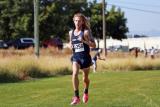


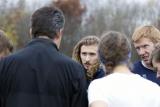
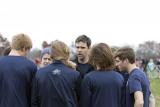
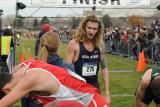
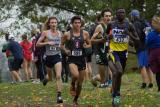



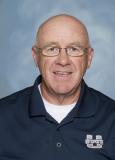


 On a typical morning, Maggard and three other people in his crew would get up at 6 a.m., crawl out of their tents, and begin preparation for the day’s project.
On a typical morning, Maggard and three other people in his crew would get up at 6 a.m., crawl out of their tents, and begin preparation for the day’s project.